Drawing textures and patterns is fun and relaxing, and it’s also a key part of learning to draw. They are appealing on their own, but you can also use them to fill in a part of a drawing.
The best part is that you can invent thousands of different patterns and draw them at any time: in class, during a meeting, while talking on the phone… because drawing them doesn’t require much focus. Maybe that’s why they are so relaxing.
I hope you try these ideas for drawing textures and get inspired to create your own patterns.
1. Dots
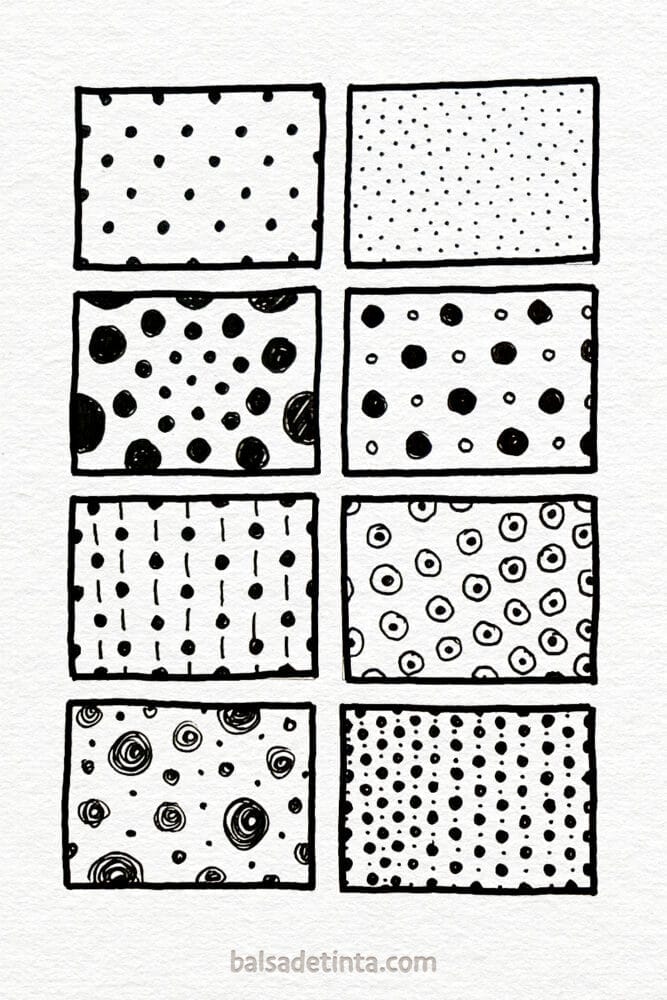
The dot (and its bigger sibling, the circle) is the most basic shape you can make in drawing. Although it might seem too simple, you can create beautiful patterns just by using dots, varying their arrangement and size.
2. Lines
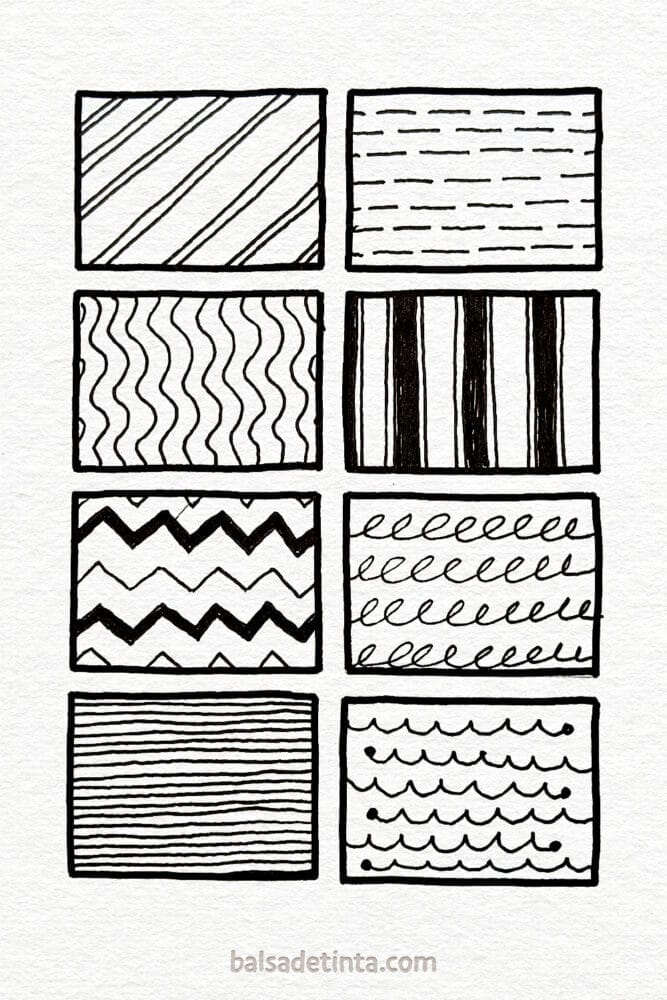
Line patterns are everywhere. We see them constantly in fabric prints, clothes, wallpaper, etc. Yet the possibilities for creating new patterns with lines remain endless.
3. Shapes
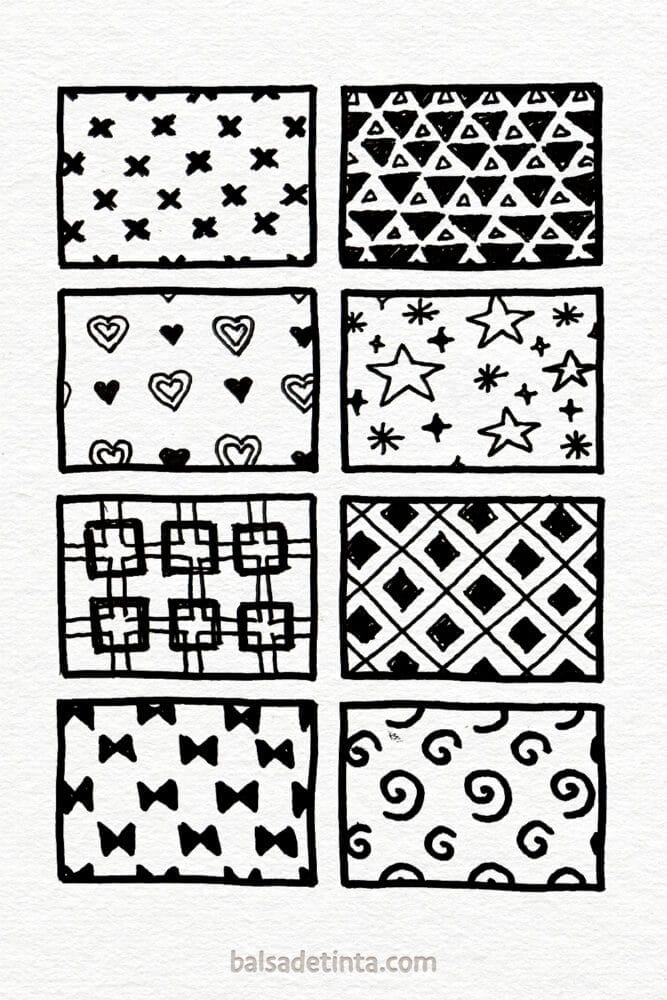
By repeating and combining shapes or icons, you can create textures that have more visual interest than those made with just dots and lines.
4. Geometric
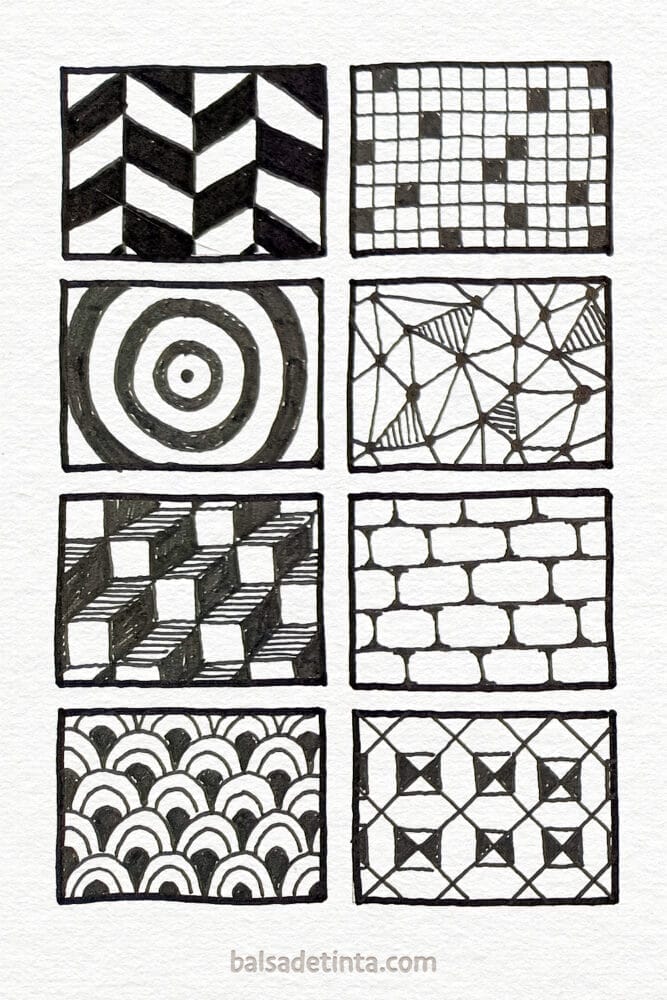
When you fill in some of the spaces created in the pattern, the result looks bolder and more geometric.
5. Organic
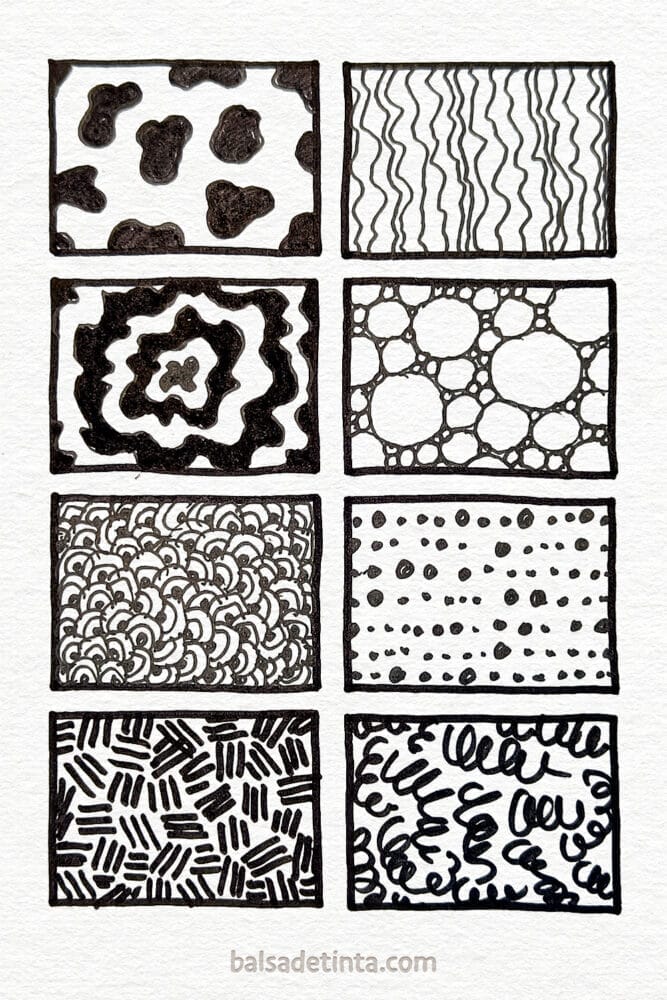
To create textures with an organic look, we have to forget about ordering the elements or using geometric shapes. Practice random arrangement, variable spacing, irregular shapes, wavy lines, etc.
6. Nature

Nature is THE GREAT source of inspiration for drawing textures. Tree trunks, leaves, animal skins, minerals, ocean waves… wherever you look, you’ll see a pattern you can replicate.
7. Themed
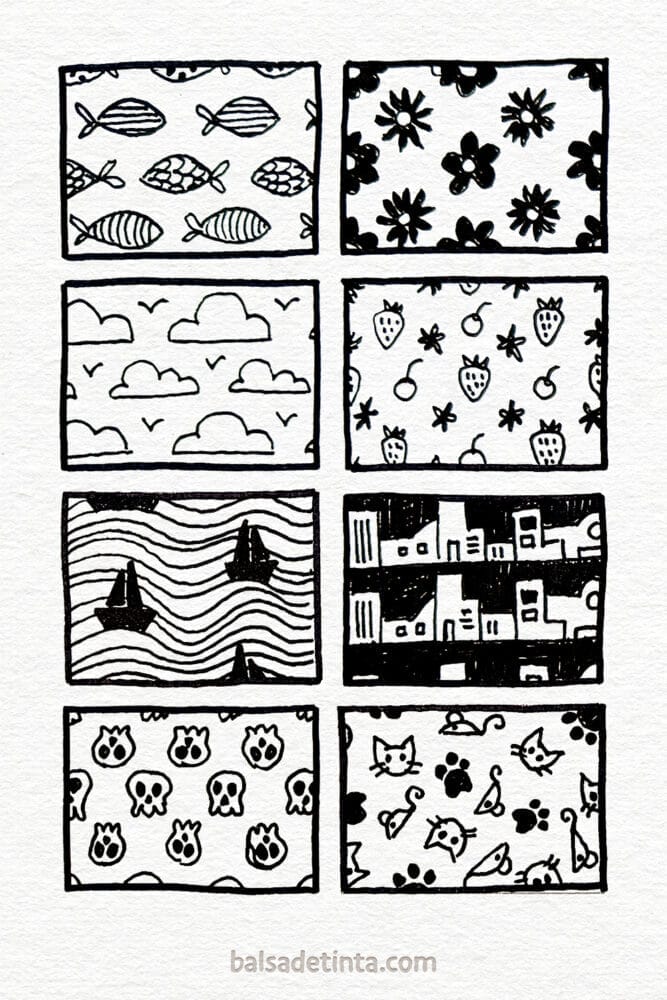
Patterns can represent a specific theme if the elements you draw are icons or simple drawings.
8. Colorful

Why limit yourself to black and white? If you have some colored gel pens, markers, or any other paint, you can create colorful textures.
How to Create Your Own Textures
You can find inspiration anywhere—patterns are in nature, on the prints of our clothes, on the tiles of the floor, on wrapping paper…
In general, it’s about repeating a layout of one or several of these elements all over the page:
- Dots and circles
- Lines: straight, wavy, dotted, zigzag, etc.
- Geometric shapes: triangles, squares, rectangles, trapezoids, hexagons.
- Abstract or irregular shapes.
- Icons: plants, animals, objects, etc.
How to Vary a Pattern
As you’ve seen in the examples above, there are many ways to create multiple patterns from the same element. Some ways to vary a pattern using the same elements are:
- Place them in the same direction.
- Each time you repeat them in a row/column, draw them in the opposite direction.
- Mirror the elements as if they were facing each other.
- Turn and rotate them.
- Alternate some elements with others.
- Radiant arrangement.
- Completely random.
- Color or fill some of the shapes.
What Can I Do with Textures?
Textures, patterns, and prints are an important part of art and design. Often, they are the reason why you like the design of an object, a piece of clothing, or a work of art so much.
With textures, you can:
- Simply doodle to practice eye-hand coordination.
- Practice art therapy—drawing patterns is quite relaxing because you can let your mind go blank.
- Use them as backgrounds or fills in your drawings.
Before You Go
Thanks for reading this far! I hope this list of texture ideas has inspired you to start drawing.
If you liked these sketches and are looking for more simple things to draw, try these landscapes—you can practice the patterns we’ve seen in many of them!:
Would you like me to add something else? Let me know in the comments!


Leave a Reply